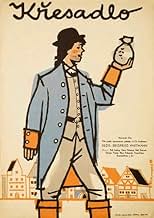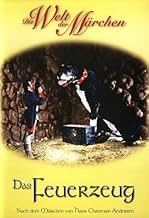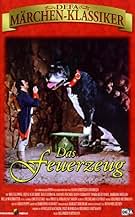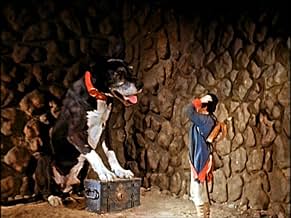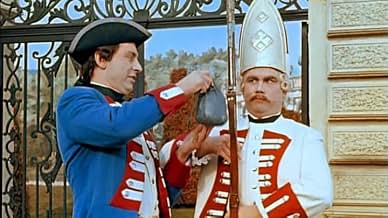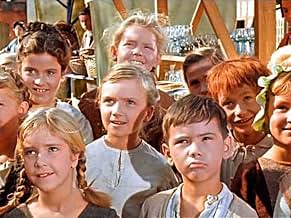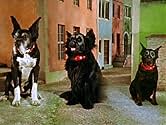I assume that films of well-known fairy tales cannot have spoilers, because almost anyone seeing the film will know the original story. Nevertheless, I have not described any of the story once the soldier reaches the town.
The scene is set by the soldier, who is the hero of Hans Christian Andersen's tale, and is ably played by Rolf Ludwig, singing his woes to a melody which is typically for the 1950's rather happy-go-lucky. To the modern ear this introduction is quite likely to seem very tedious, and, indeed, the pace of the film is more attuned to a younger audience than those who would otherwise enjoy the narrative. After the song, the soldier is confronted by the old woman, adequately played by Maria Wendt. Unfortunately, the make-up artists overdid their job completely on this character, and, although the result may have been entertaining for young viewers at the time the film was made, the effect on today's young people is more likely to be off-putting, and to distract from the story more than to emphasise it. On the whole, this confrontation scene does a good job in arriving at the outcome without implying any blame on the soldier, which is an aspect I often thought about when I heard the story as a child. However, the dogs were not only lacking in ferocity, which at least has the advantage that younger children are able to appreciate the film, but they were not sufficiently differentiated in size. Indeed, all of the special effects in this film seem to be badly done, but some allowance must be made for the year, 1958, and the country, East Germany.
When the film moves on into the town, the background becomes even less realistic, but to some extent this lends a fairy tale atmosphere to the various scenes. Unfortunately, the standard of acting also drops a notch or two. The town characters are all one dimensional caricatures, and this approach to fairy tale films is underlined by the choice of costumes. In addition, Barbara Mehlan makes an awful princess, and this fact destroys much of the enjoyment of the latter part of the film. It is not that her acting is any worse than that of the other characters in the part of the film which takes part in the town, but that she simply does not fit the role.
'Das Feuerzeug', which, by the way, I saw in the original German, does a fair job of telling Hans Christian Andersen's story as a film, but it is let down badly in the details, which is a pity, because, although the East Germans never seemed to reach the heights of Polish, Soviet Union and above all Czechoslovakian children's films, there were many from this now defunct country which were much better than this one.

